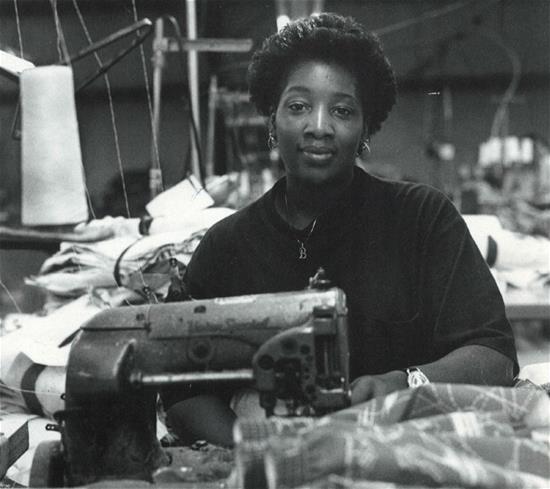
The worker-owners of New Bern Bakery, Self-Help’s first backers, outside their storefront in 1981.
Did you know that as a credit union, Self-Help is one of many thousands of cooperative enterprises? There are currently over sixty-four thousand cooperatively owned and operated businesses in the U.S. working to meet a wide range of consumer and community needs, including financial institutions, restaurants and retail stores, manufacturers, and even utilities.
What makes these businesses different from traditional sole-proprietor businesses is that they are owned jointly by either their workers, their consumers, their communities – or any combination of the above. Joint ownership plus democratic structure means that cooperatives can make different choices than other businesses, often with big impacts on the communities they serve.
What is a co-op?
While cooperative businesses can take many forms, in general, a co-op is an enterprise that is owned and governed by its employees, consumers, or communities. As a group of co-owners, the members of a co-op share decision-making power in a one-member, one-vote system.
In worker-owned co-ops, workers jointly own and operate a business and share its profits. This could be a small retail business, like Durham, North Carolina’s Electric Violin Shop (check out their story here), or a multi-billion dollar, multi-sector enterprise with over 80,000 employee-owners, like the Mondragon Corporation in northeastern Spain, which was an early source of inspiration for Self-Help.
Consumers and communities can also work together to create cooperative businesses that meet a variety of needs, like grocery stores, schools, utilities, or housing. The Hendersonville Community Co-op in Hendersonville, NC, for example, has worked since 1978 to meet the Hendersonville community’s need for fresh, high-quality produce and natural foods, and in 2016, they partnered with Self-Help to finance their expansion.
How can co-ops benefit workers?
Worker-owned co-ops bring workers together for control and decision-making in the operations of the business. While traditional business structures rely on the leadership of a sole owner or corporate board of directors, worker-owned co-ops allow workers to make decisions for the business collectively and democratically.
This type of co-op also share profit and risk among worker-owners. When the business thrives, the employees share the fruits of their labor equally. When it falls on hard times, instead of laying off employees, worker-owned co-ops will often work together to make sure every employee is taken care of. This democratic structure can provide security and stability for worker-owners.
How can co-ops benefit communities?
Because co-ops aim to meet a collective need – whether for workers, consumers, or communities – they have the potential to provide stability and can strengthen local economies by keeping money in the community. While not every co-op business is guaranteed to be successful, a strong community co-op can prioritize the community’s needs over short-term profits.
Examples of cooperative businesses include:
-
Financial co-ops like credit unions are a major resource for communities, especially under-resourced and under-banked ones that have been historically shut out of traditional financial institutions.
- Food co-ops operated by and for the communities they serve can foster healthy food systems in areas where chain grocers might avoid opening supermarkets.
- Worker-owned cooperatives also provide an opportunity for retiring business owners to preserve the legacy of their work and maintain their employees’ jobs by giving employees what’s known as the “right of first refusal,” where the retiring employer gives workers the opportunity to jointly purchase the business and continue operating it cooperatively.
- While not businesses, land trusts and housing cooperatives are another type of co-op that can provide affordable and democratically controlled housing, especially in areas where gentrification threatens to price out longstanding communities.

Barbara Bardlavens, a worker-owner of the Workers’ Owned Sewing Company (WOSCO).
Self-Help’s legacy of strong partnerships with co-ops
Co-ops have been our partners since the very beginning. While our mission has always been creating and protecting ownership and economic opportunity for all, one of the first ways we worked to carry out this mission was by providing technical and financial assistance to new cooperative businesses started by displaced textile workers in North Carolina. Our very first equity came from a bake sale by a worker-owned bakery in New Bern, NC. You can read more about this work here.
Self-Help has partnered of the North Carolina Employee Ownership Center, a statewide nonprofit that educates business owners and their advisors on the benefits of employee ownership. You can learn more about their successes here.
Finally, as a credit union, our member-owner structure means that we’re part of a global movement of cooperative financial institutions that prioritize the financial goals of our member-owners. When you invest in credit unions, your money and your fellow member-owners’ money goes to work to strengthen communities, build wealth, and increase economic justice right where you live and work. You can learn more about credit unions as co-ops from the Filene Research Institute.
What resources are available to someone thinking about starting a co-op business?
If you’re thinking about how you might get started forming a cooperative yourself, there’s a wealth of resources from statewide and national organizations dedicated to educating the public about cooperative enterprise: